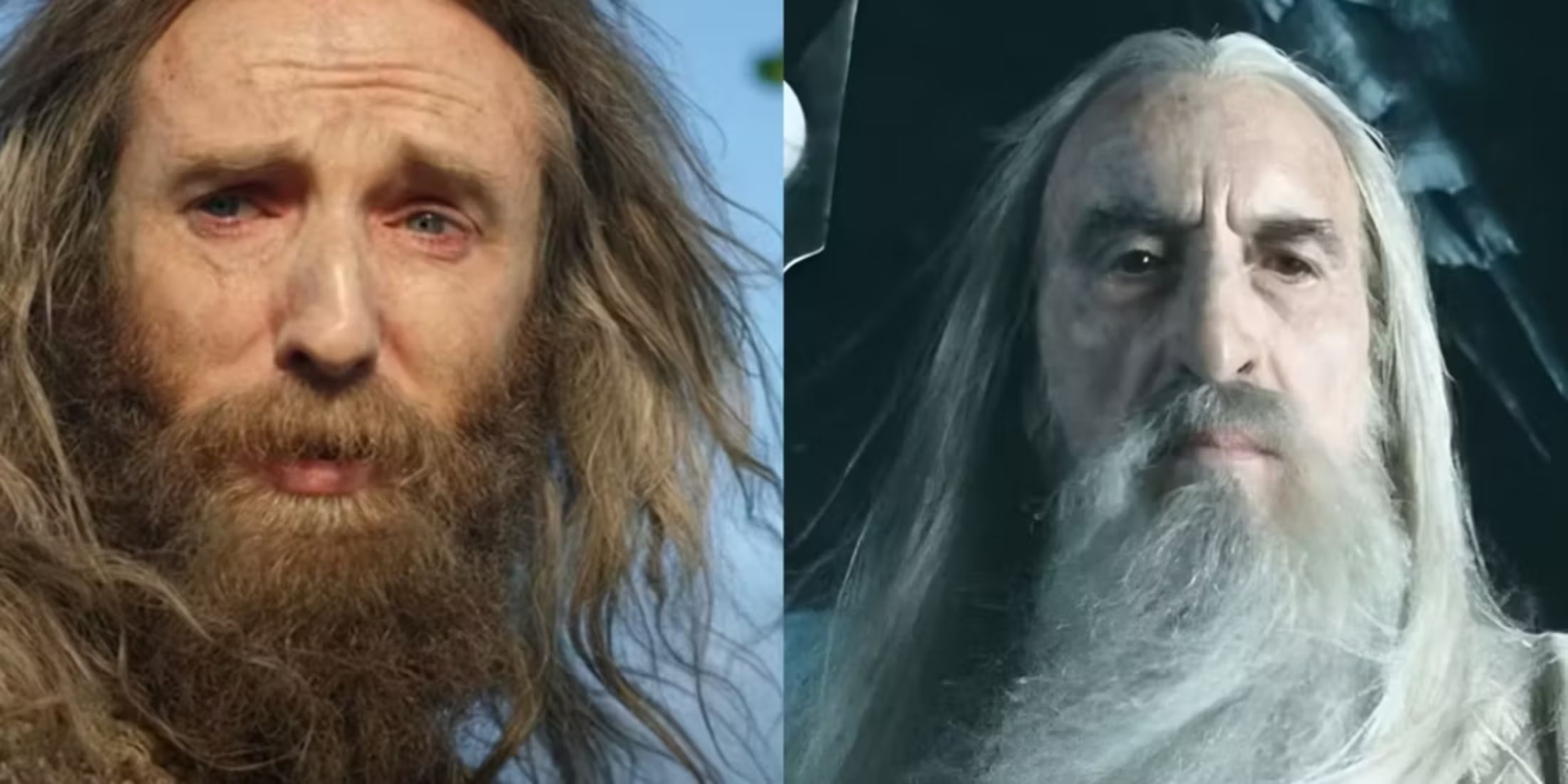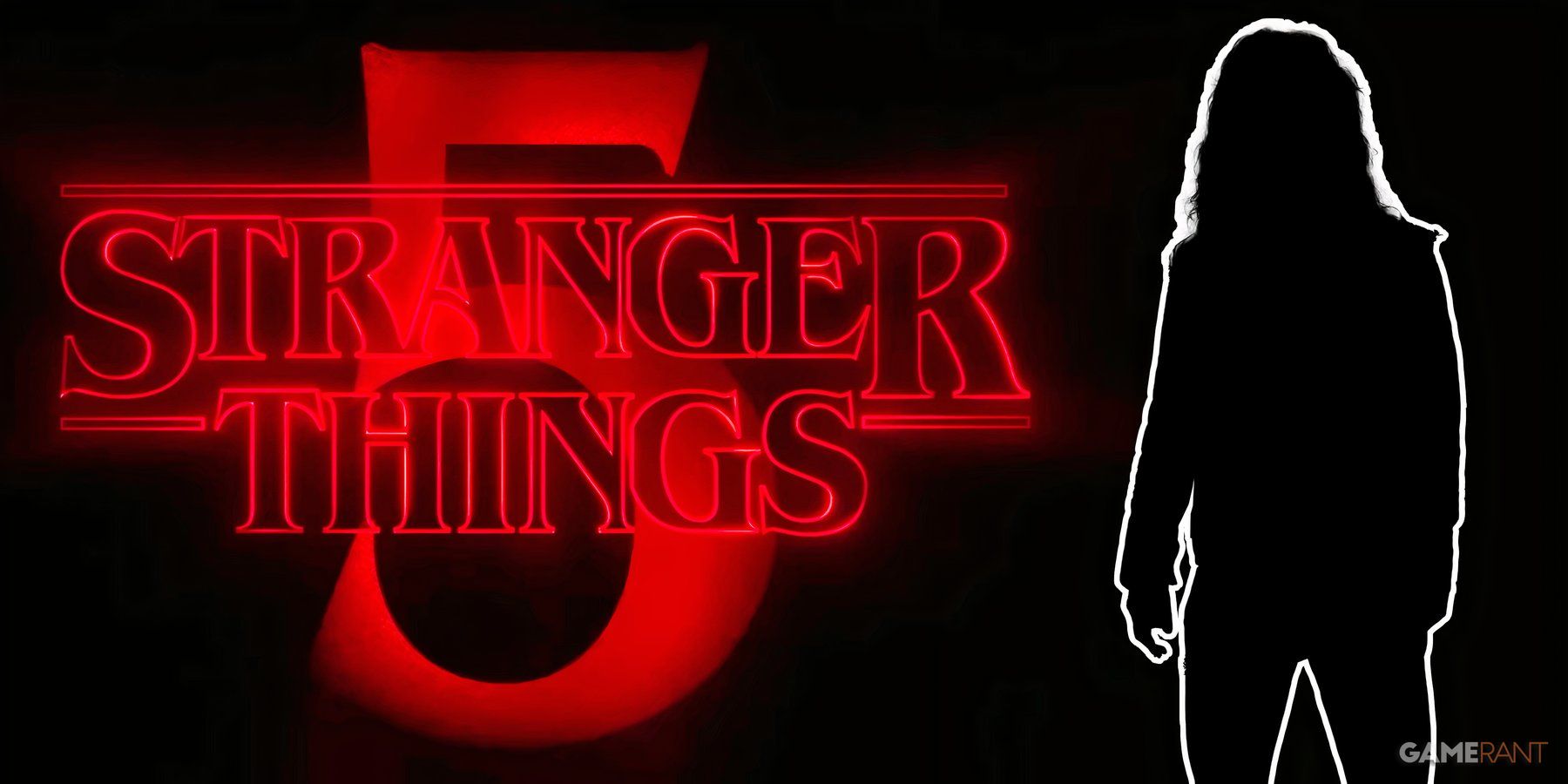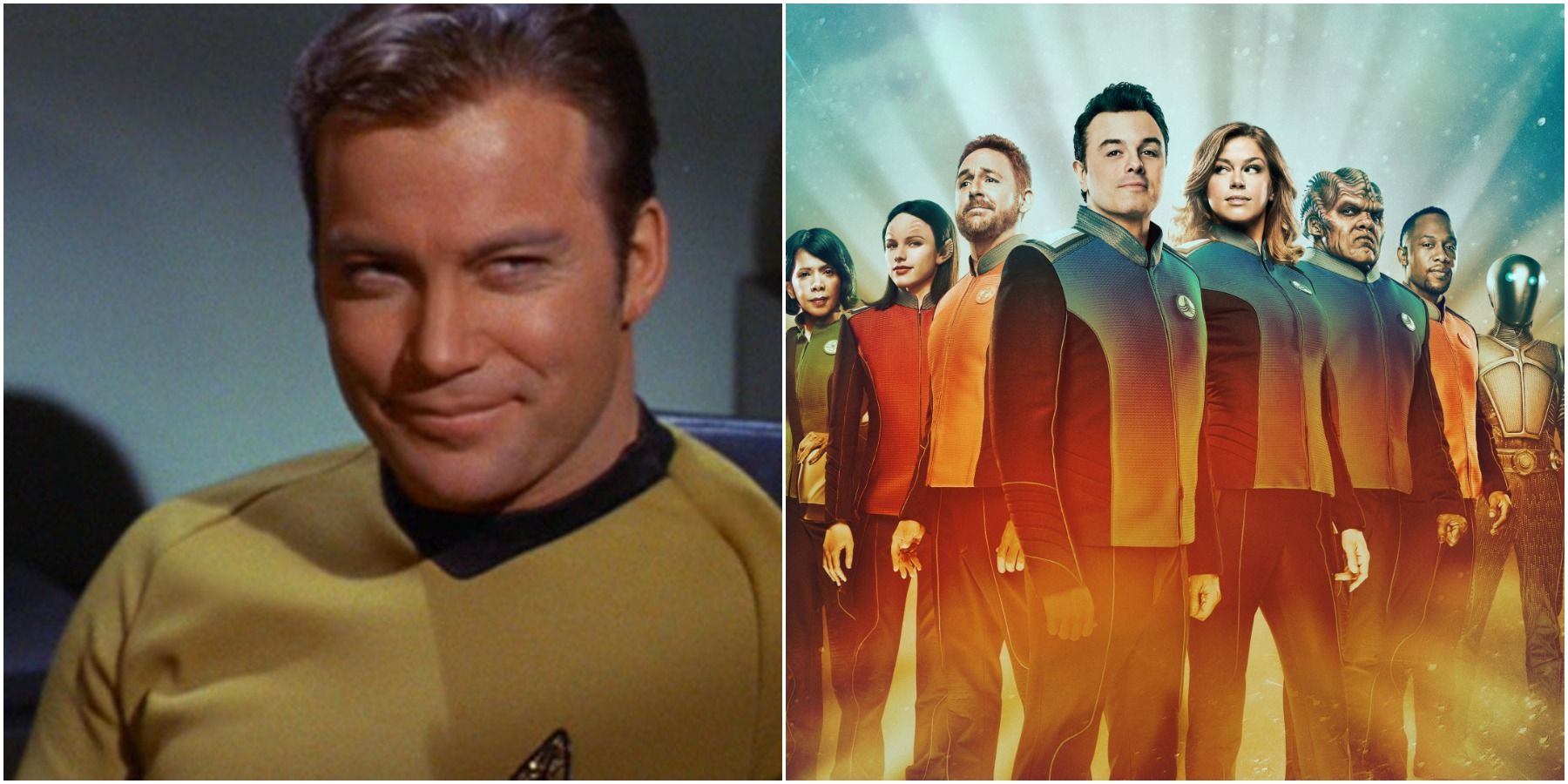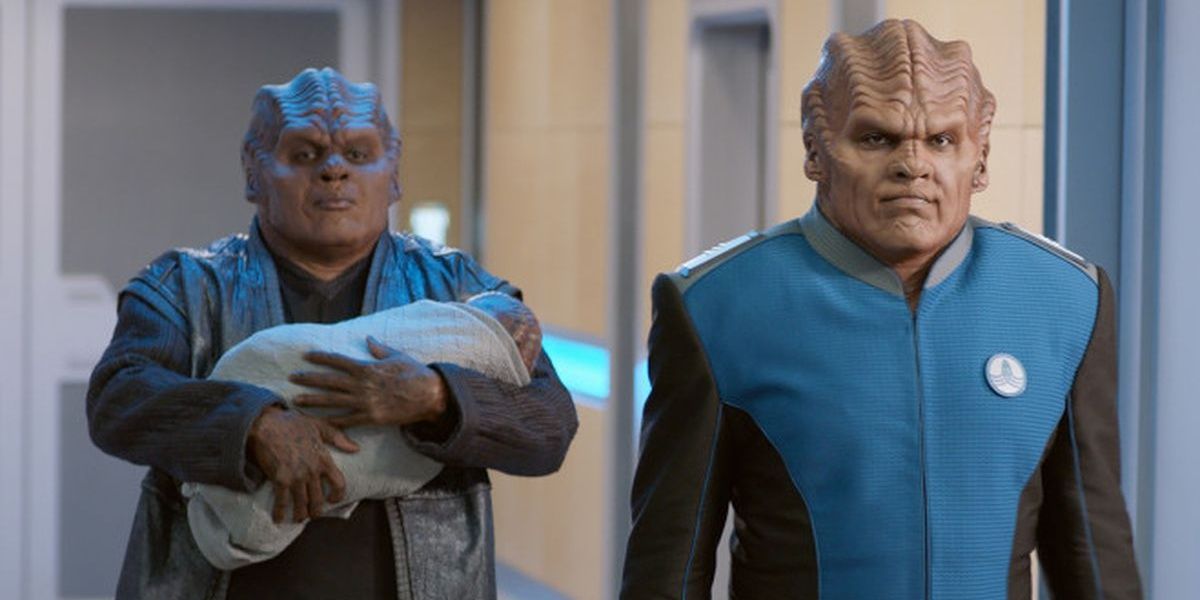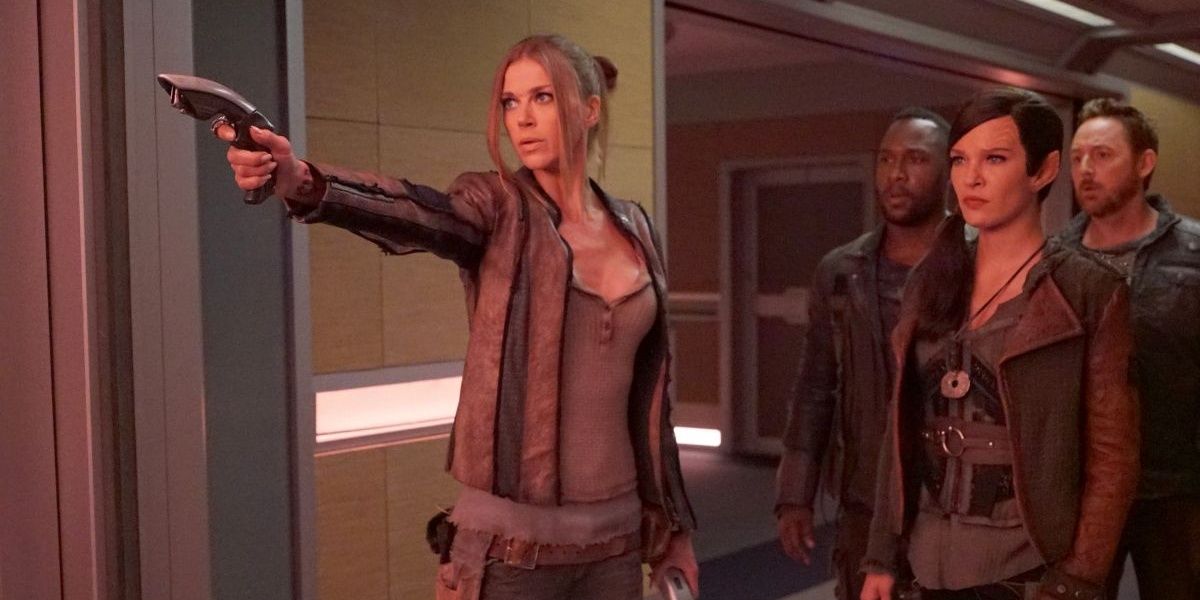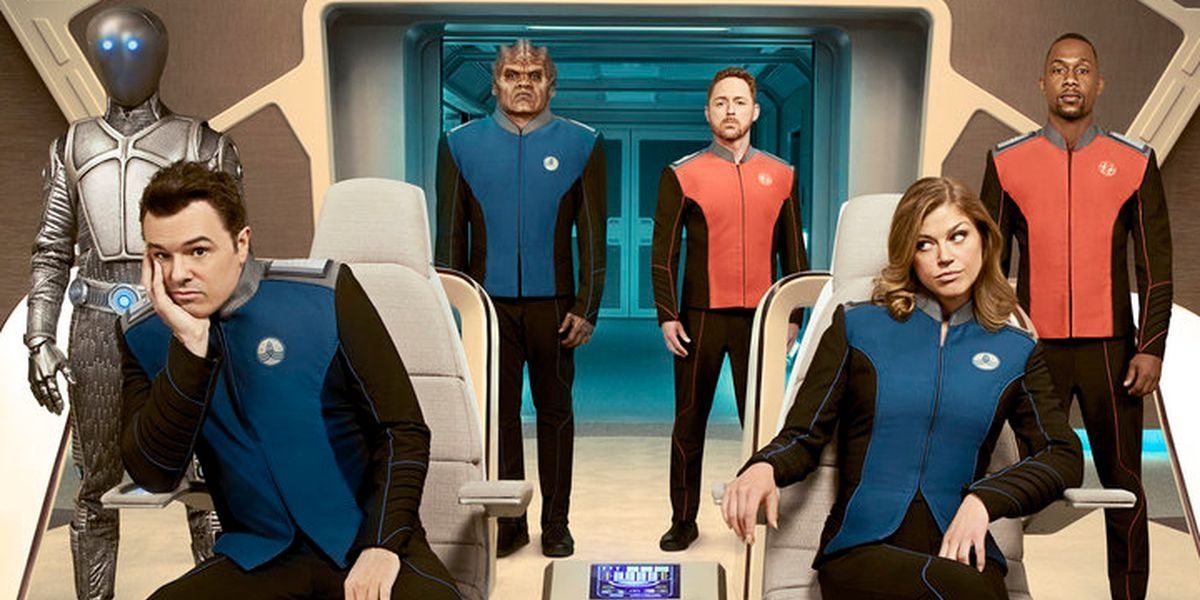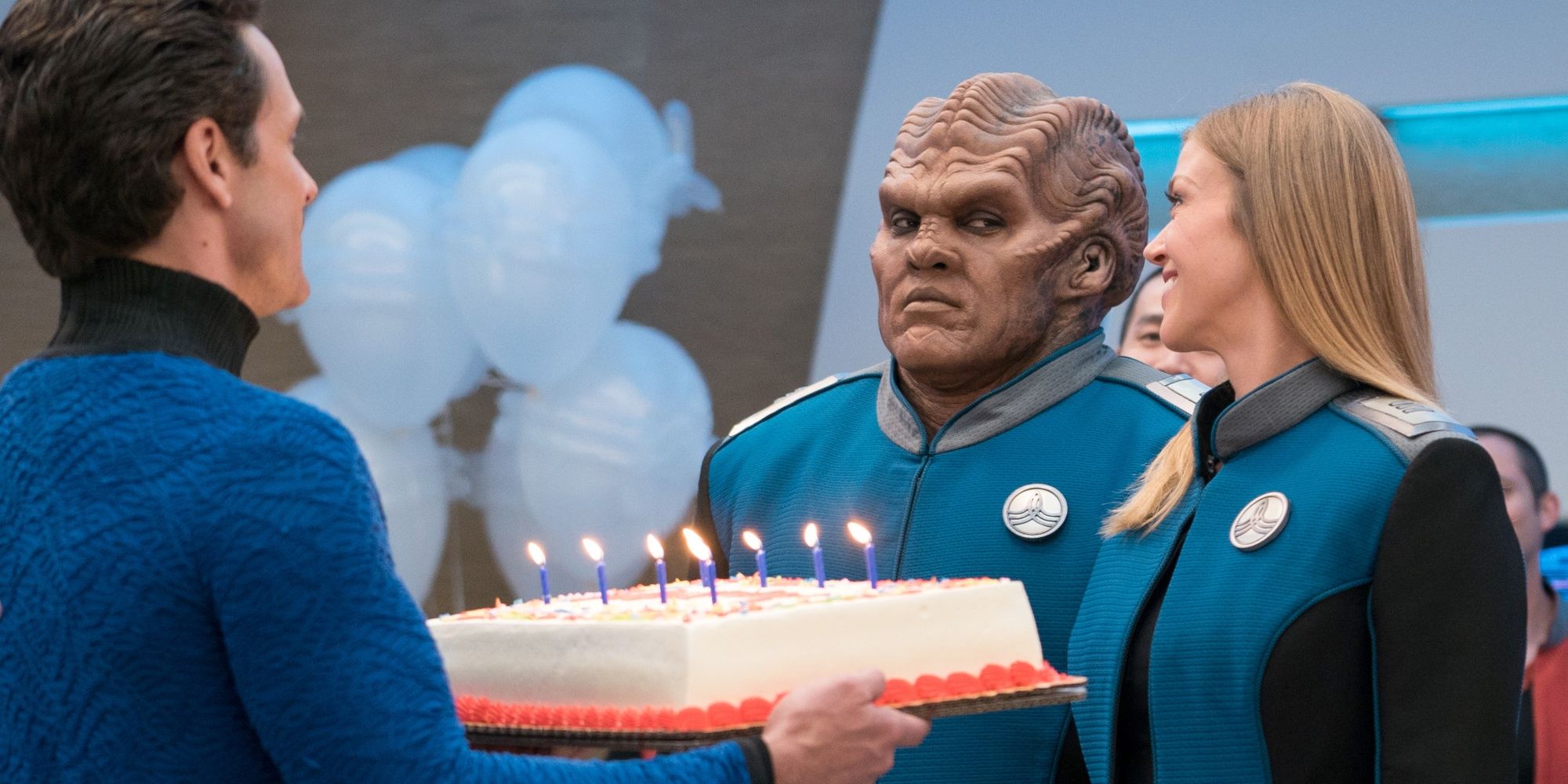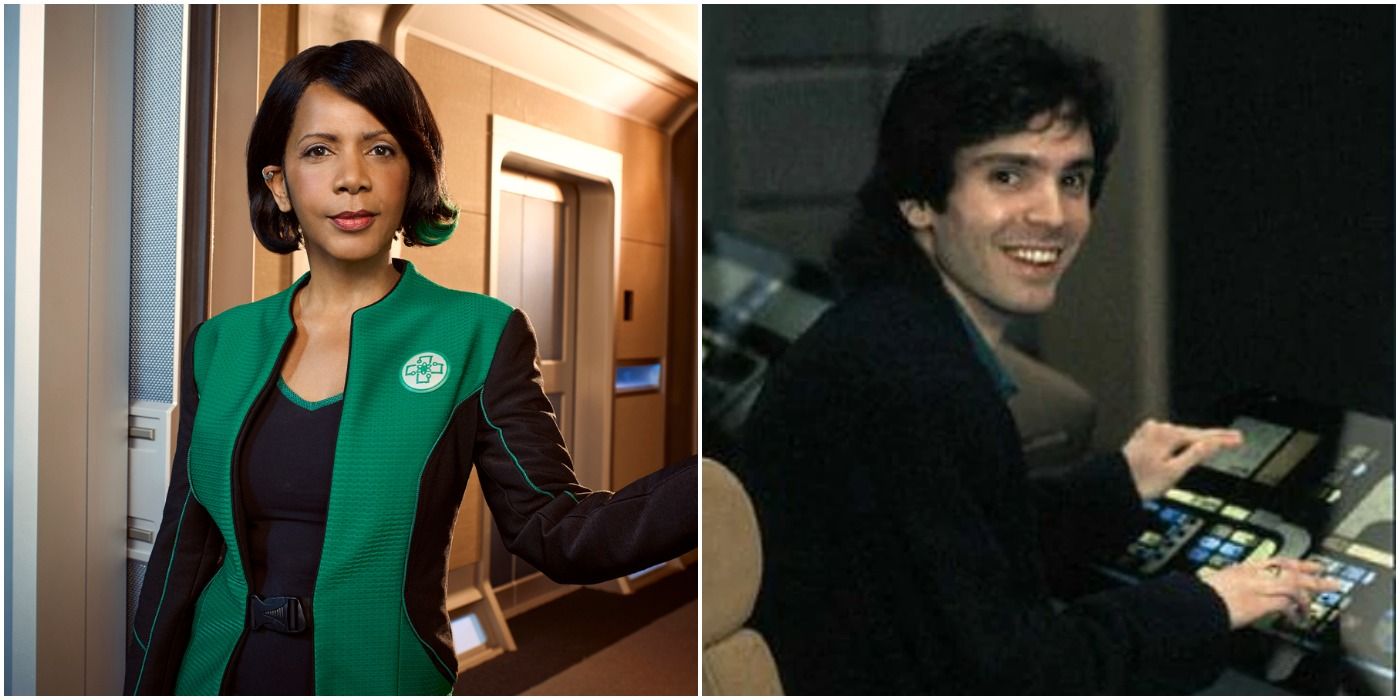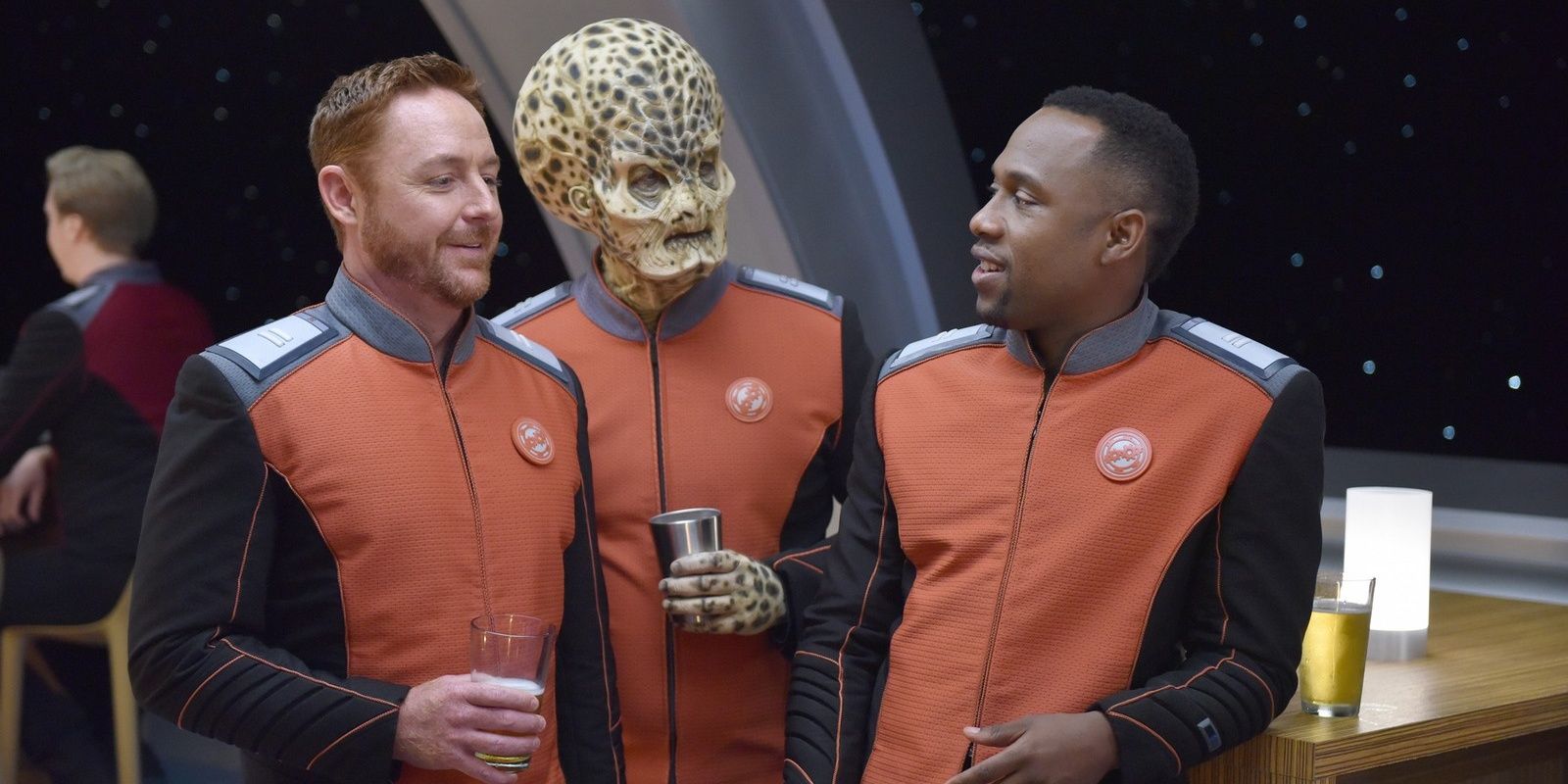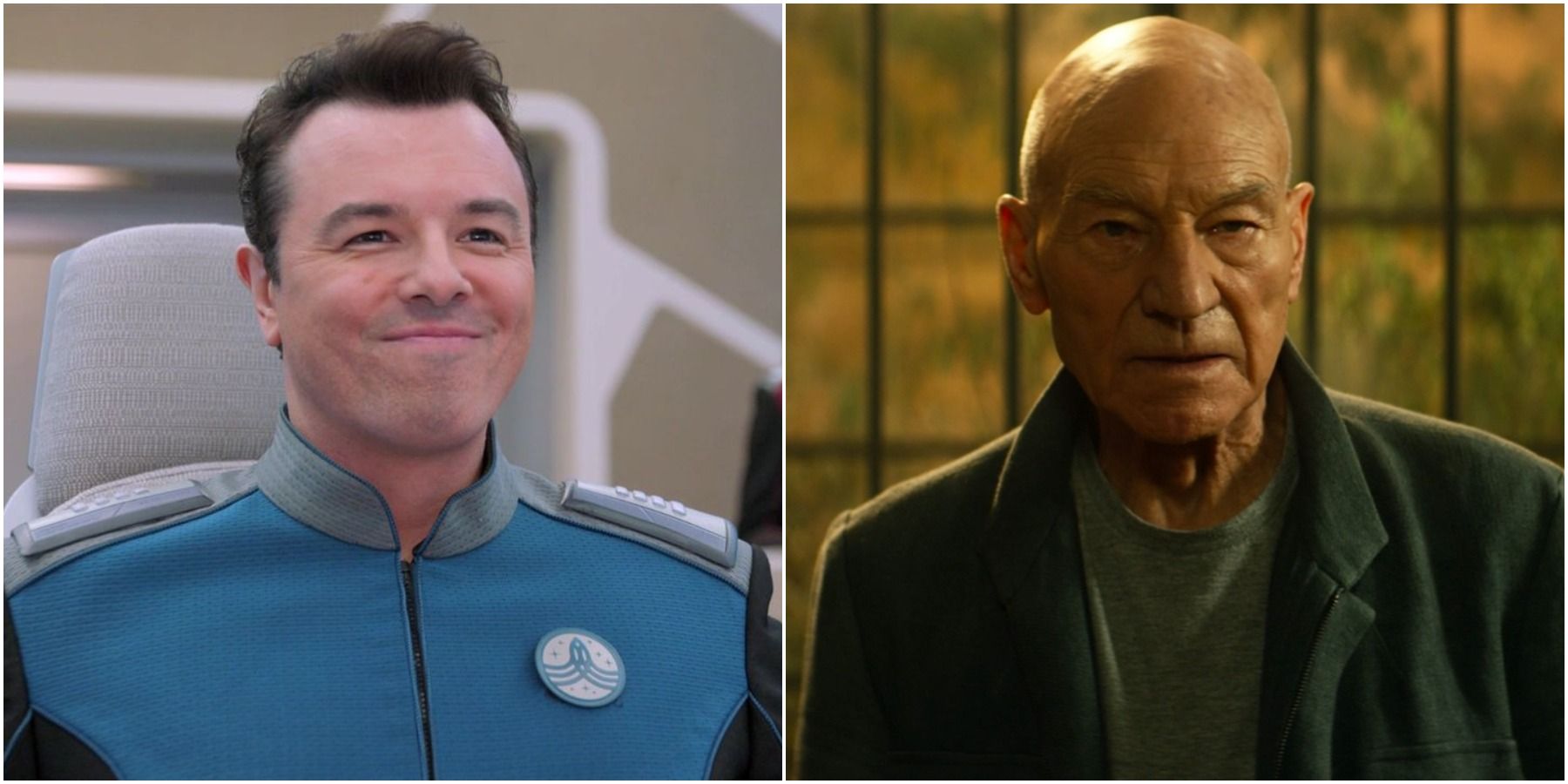The Orville is odd duck. On the surface, it seems like a spoof of Star Trek, but that's an oversimplification. In contrast to Seth MacFarlane's other work, it tends more towards loving homage than outright parody.
In fact, fans might be shocked to discover how faithful it is. The Orville essentially aims to be an old-school Star Trek show. It forgoes the action spectacle of the modern renditions and returns to the thoughtful utopian vision of the years past. Aside from the obligatory sex joke here and there, the series is actually truer to the Star Trek spirit than any of the franchise's contemporary entries. Ironically, these qualities have led many Trekkies to jump ship and enlist on MacFarlane's crew.
7 Intellect, Not Emotion
Star Trek was always the thinking man's space adventure. It tackled complex issues in an intelligent way. Rarely was there a definitive right or wrong choice in a given conflict. Rather, the writers weighed the merits of numerous perspectives. Sadly, the writers behind Discovery and Picard neglect to do that. In those shows, the characters look at problems through the lens of gut emotional responses, giving less thought or depth to differing perspectives.
The Orville considers those opposing viewpoints. Even issues which seem obvious are only simple on the surface. Resolutions don't come without measuring the moral, ethical, and political ramifications. Otherwise, it would oversimplify any multicultural dilemmas it raises.
6 It's Not Just An Action Show
To appeal to a wider audience, Star Trek has incorporated more and more bombastic battle scenes into its recent entries. They have adapted a breakneck pace straight out of Star Wars and enough explosions to make Michael Bay blush. These sequences may be entertaining, but they were never what Star Trek was meant to be, as the franchise was never big on action spectacle. Granted, part of that came down to the low budget. Such limitation bred creativity, though, and helped establish the series as a more thoughtful sci-fi property than its peers.
The Orville is similarly scant on thrills. Like the works that inspired it, the show prefers to contemplate each scenario before resorting to violence. Even then, the action is usually basic and short-lived. This arguably makes it more impactful.
5 Aesthetic
Again, budget was never the appeal of the original Star Trek. That's plain to see in the original series with its dime-store props and recycled sets. Even with The Next Generation and the following shows in the '90s, the franchise wasn't nearly as showy as its sci-fi contemporaries. The tools, costumes, and environments looked functional without much gloss or sheen. That all changed in the 2009 movie, however.
With that film and the TV shows which came after, Star Trek has sought to emulate big-screen blockbusters. It has more elaborate designs, lens flares everywhere, and CGI as far as the eye can see. Though visually impressive at times, this newly-minted style feels a bit too busy.
MacFarlane and company don't have that budget. At the very least, they don't flaunt it. The Orville has a simplistic interior, and its crew sport streamlined uniforms which seem easy to wear. Any prosthetics are usually conservative in their use, never impeding an actor's expression. Everything here looks lived-in. This should make it comfortable viewing for those fans missing the quaint aesthetics of yesteryear.
4 Standalone Episodes
Many modern TV shows, especially streaming shows, opt for serialized storytelling. A season functions as a ten-hour movie, each episode leading directly into the next. Watching any individual chapter yields confusion over what came before. Star Trek is no exception to this, but that wasn't always the case.
In the past, the series subsisted on episodic adventures. There might be an overarching plot in the background, but every episode could stand on its own. Even the long-form Deep Space Nine stitched its narrative together with smaller adventures. It presented a tale and resolved it before the credits rolled. This helped with syndication, as there was no guarantee that viewers would see the episodes in the order they were produced. The Orvillefunctions with the same format. Subplots may carry over, but it mostly relies on standalone stories. If it was a network show, it would leave audiences satisfied every week.
3 Familiar Faces
Another area where MacFarlane shows his love is the team that he wrangles. Many actors here worked on previous Star Trek shows. The most prominent is Penny Johnson Gerald. Known for her recurring role as Kasidy Yates on Deep Space Nine, she plays the Orville's resident doctor. In addition, the show features guest appearances from Brian George, Marina Sirtis, Robert Picardo, Tim Russ, John Billingsley, and numerous others. It doesn't stop there, though.
The series also has some familiar names behind the camera. Former Star Trek writers like Brannon Braga, David A. Goodman, Andre Bormanis, and Joe Menosky. Not only does their inclusion lend legitimacy to the show, but it also allows the voice of the old Trek to shine through, explaining why it feels so familiar to longtime fans.
2 The Crew & Their Relationships
A ship is nothing without its crew, and recent Trek staff don't always inspire confidence in that area. Their relationships feel contrived, often told instead of shown, and lack chemistry.
The Orville mirrors old Trek shows in achieving that chemistry. Like the Enterprise, Deep Space Nine, and Voyager before it, this vessel's crewmembers feel like a cohesive unit. They engage in small talk, have fun together, and take an interest in each other's lives. Any strife that arises is more believable as a result.
1 Optimism
A core pillar of Gene Roddenberry's vision is hope. With Star Trek, he created a future where humanity has overcome past conflicts and come together for a better tomorrow. What's more, they've forged friendships with countless alien species, united in their quest for peace and exploration.
That peace is lost in recent entries. The characters still deal of racism and hostility, and they spend an obscene amount of time lamenting how little progress has been made in the last few centuries. In some recent entries, the setting is now more akin to a dystopia than a utopia.
The Orville isn't nearly as dark, and not just because of its comedic creator. The various races and species here are on good terms. No matter how weird they look or sound, racism is off the table for every galactic denizen. It's a friendly future which viewers would want to live in, one where optimism is alive and well.

